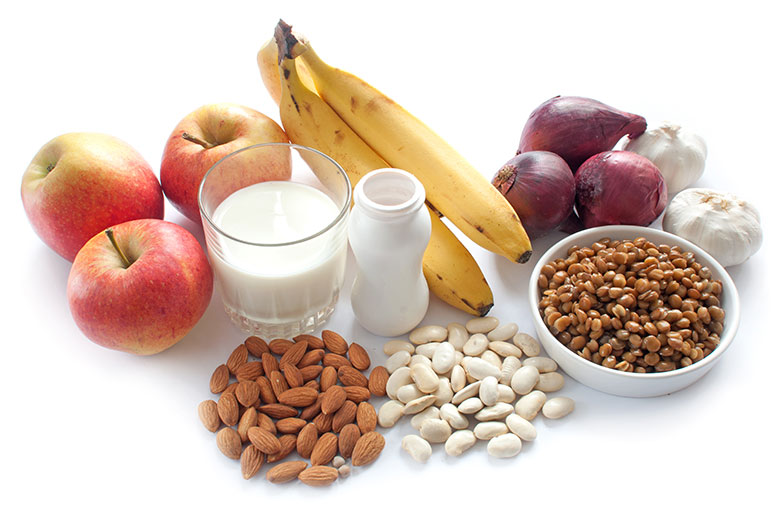Recommended Daily Intake for Toddlers Aged 1-2 Years
Feeding toddlers is no easy feat. Usually once your child turns one one, their growth has begun to slow down ...
Read MoreImportant notice to customers — product packaging changesLearn More
NEW FOOD PACKAGING IN STORE NOW
From August 2018, customers will notice our rebranded food packaging start to appear on shelf in all major stockists.
 CURRENT Packaging
CURRENT Packaging

 new Packaging
new Packaging
We are excited to announce our new packaging will start to appear on shelf from August 2018. This transition to new packaging will occur over a number of months. During this time there will be a mix of current and new packaging on shelf.
There are no major changes to these products, in some instances there is a small name change or slight recipe improvement, see below for the full details.
Products purchased via the website will be delivered to customers in our old packaging until the end of October. From November, products ordered from the website will be delivered in the new packaging.
Please note, our Infant Formula packaging will not be rebranded until later in 2019.
For any questions, connect with our team of accredited practising Dietitians on +61 3 6332 9200
Product name changes
 CURRENT Packaging
Organic Baby Rice
CURRENT Packaging
Organic Baby Rice

 NEW Packaging
Organic Rice with Prebiotic (GOS)
Note: Our Baby Rice recipe has been upgraded to now include GOS Prebiotic
NEW Packaging
Organic Rice with Prebiotic (GOS)
Note: Our Baby Rice recipe has been upgraded to now include GOS Prebiotic
 CURRENT Packaging
Organic Vanilla Rice Custard
CURRENT Packaging
Organic Vanilla Rice Custard

 NEW Packaging
Organic Milk & Vanilla Baby Rice
NEW Packaging
Organic Milk & Vanilla Baby Rice
 CURRENT Packaging
Organic Apple & Cinnamon Porridge
CURRENT Packaging
Organic Apple & Cinnamon Porridge

 NEW Packaging
Organic Apple & Cinnamon Baby Porridge
NEW Packaging
Organic Apple & Cinnamon Baby Porridge
 CURRENT Packaging
Organic Banana, Pear & Mango
CURRENT Packaging
Organic Banana, Pear & Mango

 New Packaging
Organic Banana, Pear, Apple & Mango
New Packaging
Organic Banana, Pear, Apple & Mango
 CURRENT Packaging
Organic Mango, Blueberry & Apple
CURRENT Packaging
Organic Mango, Blueberry & Apple

 New Packaging
Organic Blueberry, Mango & Apple
New Packaging
Organic Blueberry, Mango & Apple
 CURRENT Packaging
Organic Peach & Apple
CURRENT Packaging
Organic Peach & Apple

 New Packaging
Organic Grape, Apple & Peach
New Packaging
Organic Grape, Apple & Peach
 CURRENT Packaging
Organic Pumpkin & Tomato Risotto
CURRENT Packaging
Organic Pumpkin & Tomato Risotto

 New Packaging
Organic Pumpkin, Sweet Potato & Tomato
New Packaging
Organic Pumpkin, Sweet Potato & Tomato
 CURRENT Packaging
Organic Broccoli, Beef & Brown Rice
CURRENT Packaging
Organic Broccoli, Beef & Brown Rice

 New Packaging
Organic Beef & Vegetables
New Packaging
Organic Beef & Vegetables
 CURRENT Packaging
Organic Milk Rusks Toothiepegs
CURRENT Packaging
Organic Milk Rusks Toothiepegs

 New Packaging
Organic Milk Rusks
New Packaging
Organic Milk Rusks

Of all the new dietary trends – the use of probiotics and prebiotics to help promote optimal gut health continue to grow in popularity. This is due to the continuing growth of new research linking their use to a number of health benefits.
So what are probiotics and should you give them to your baby or toddler?
Probiotics are known as the “good bacteria” and are microorganisms naturally found in the human digestive tract that improve the balance of healthy bacteria. Probiotics have been shown to:
Probiotics are found in a variety of food sources including fermented drinks and yoghurts. For adults, just one to two serves a day of these foods can reduce bloating in sensitive stomachs. For individuals who cannot eat yogurts or milk-based drinks – probiotics can also be found in supplement form. Adding probiotics to your diet is an effective way to get your daily dose of “good gut health”.
As probiotics are active living microorganisms, they often need to be kept in the fridge and consumed by the used by dates.
Prebiotics promote the growth and function of different types of good bacteria in the gut. Research has emerged that prebiotics may also play a significant role in immune function. Prebiotics found in various fibrous foods move through the digestive tract undigested and then act to feed the good bacteria to optimise gut balance. As a result, the gut is healthier and better able to absorb nutrients as they pass through the digestive tract.
For adults, there are a wide range of foods that naturally contain prebiotics. In particular, these include aromatic vegetables including onions, leeks and celery. Wheat bran, soybeans, rye based breads and bananas also contains prebiotics. Aim to include at least one to two serves a day of these foods to help feed the good bacteria in your gut and aid immune function long- term.
When it comes to babies and young children it is important to know that babies are born with a sterile gut. They have bacteria introduced to them via breastmilk or breastmilk alternatives. There is no evidence to show that adding probiotics into the diets of infants or toddlers is an issue. Most importantly, evidence does link probiotic use to the prevention and management of allergies and eczema. Probiotics may also be beneficial in preventing diarrhea. This means adding an infant friendly probiotic to your baby or toddler’s daily food intake will be highly beneficial.
It is worth noting, foods including un-ripened bananas and fermented vegetables contain prebiotics. However, these are a little heavy for small infants and toddler’s guts. Children are best introduced to these types of foods as they get older – around four or five years.
Some toddler milks contain added prebiotics that have been shown to help improve stool consistency and frequency.